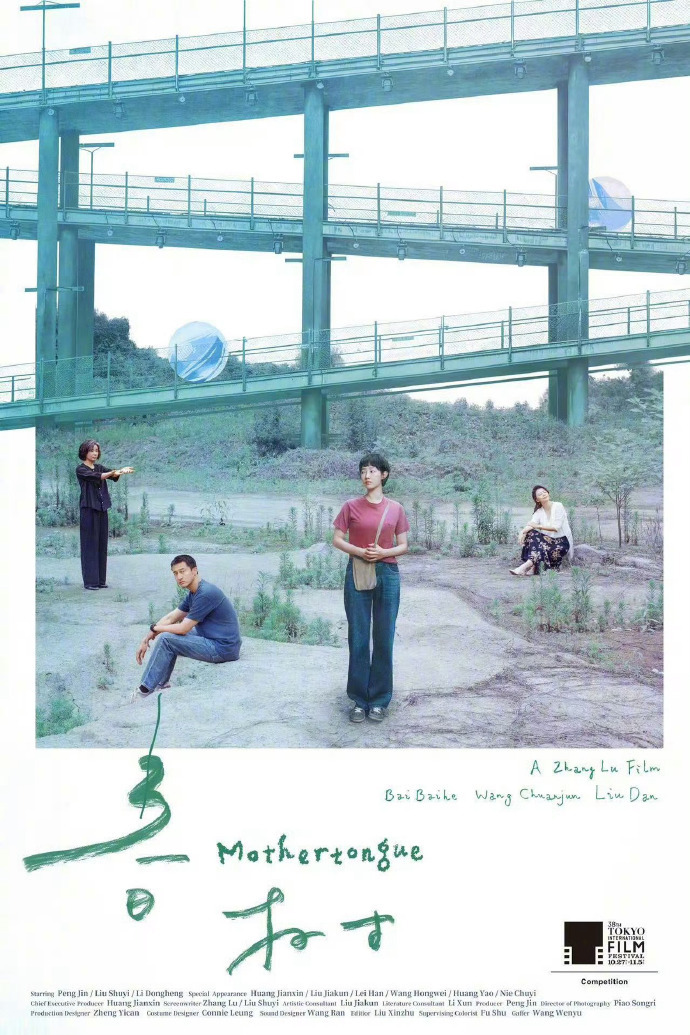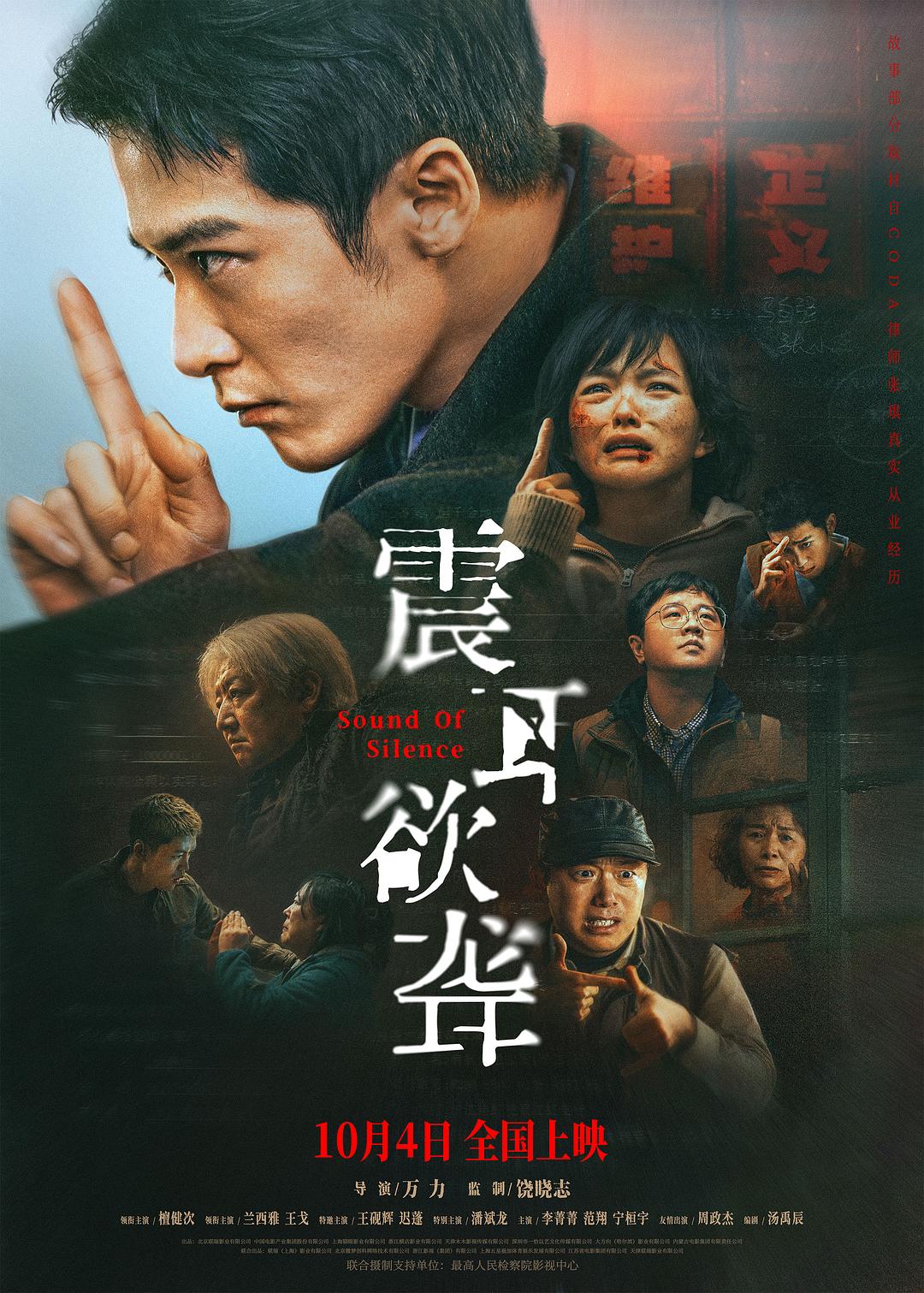
Among the cinemas during the National Day holiday, "Deafening", which was released midway on October 4, is an "outlier".
There are no special effects that fly through the air, no eye-catching topics, it tells the story of a group of "silent people" - the deaf community who are defrauded, and how a lawyer caught between "two worlds" speaks for them.

Deafening poster
When director Wan Li first met lawyer Zhang Qi, she was handling a deaf real estate fraud case: an elderly man returned home from get off work to find the locks changed, a stranger living in his house, and the property deed he had taken out had already been sold to someone else. He opened his mouth to argue, but no sound could be heard. With his pockets empty, he searched for a place to stay overnight. Later, she met a girl whose mother had been the victim of a financial fraud and their house confiscated. The family had been living in poverty for years, and only after she became pregnant and gave birth did she dare to say, "I feel like I've finally gotten over it."
As a CODA (hearing children of deaf parents) lawyer who grew up in a deaf family, his fight for the disadvantaged is not a matter of course, but also a matter of his own desire to break free from the quagmire.
These real pains became the starting point of "Deafening." It doesn't make the "deaf people fighting fraud" into a whimsical social news story, nor does it portray lawyers as all-powerful heroes—it simply honestly tells the story of the struggles of a group of ordinary people: some lost their homes, some lost their identities, some were torn between profit and conscience, but in the end, they all chose to "stand up for themselves."
On October 4th, the crime drama film "Deafening," produced by Rao Xiaozhi and directed by Wan Li, starring Tan Jianci, Lan Xiya, and Wang Ge, with special guest appearances by Wang Yanhui and Chi Peng, and a special starring role by Pan Binlong, was released. A reporter from The Paper spoke with the producer and director about how they heard the voices of those "unknown people" this time around.
Deaf people are not a symbol to gain sympathy
In traditional film and television, lawyers are often portrayed as functional, black-and-white characters, either righteously upholding justice or accomplices to powerful interests. Li Qi, in the film, is a "grayscale lawyer" who walks the fine line between black and white. Coming from a humble background, he's unabashedly obsessed with fame and fortune. He charges vulnerable individuals a flat rate of "2,000 yuan an hour," bluntly dissuading them from using "moral blackmail." He avoids thankless cases, even selectively turning a blind eye to injustices right under his nose for the sake of collateral damage. He becomes a spokesperson for the deaf community, enjoying the benefits of public service and exploiting public sympathy as a tool for career advancement. He accepts the law of the jungle, but his peers' repeated questions about fairness and justice stir his undying sense of justice.
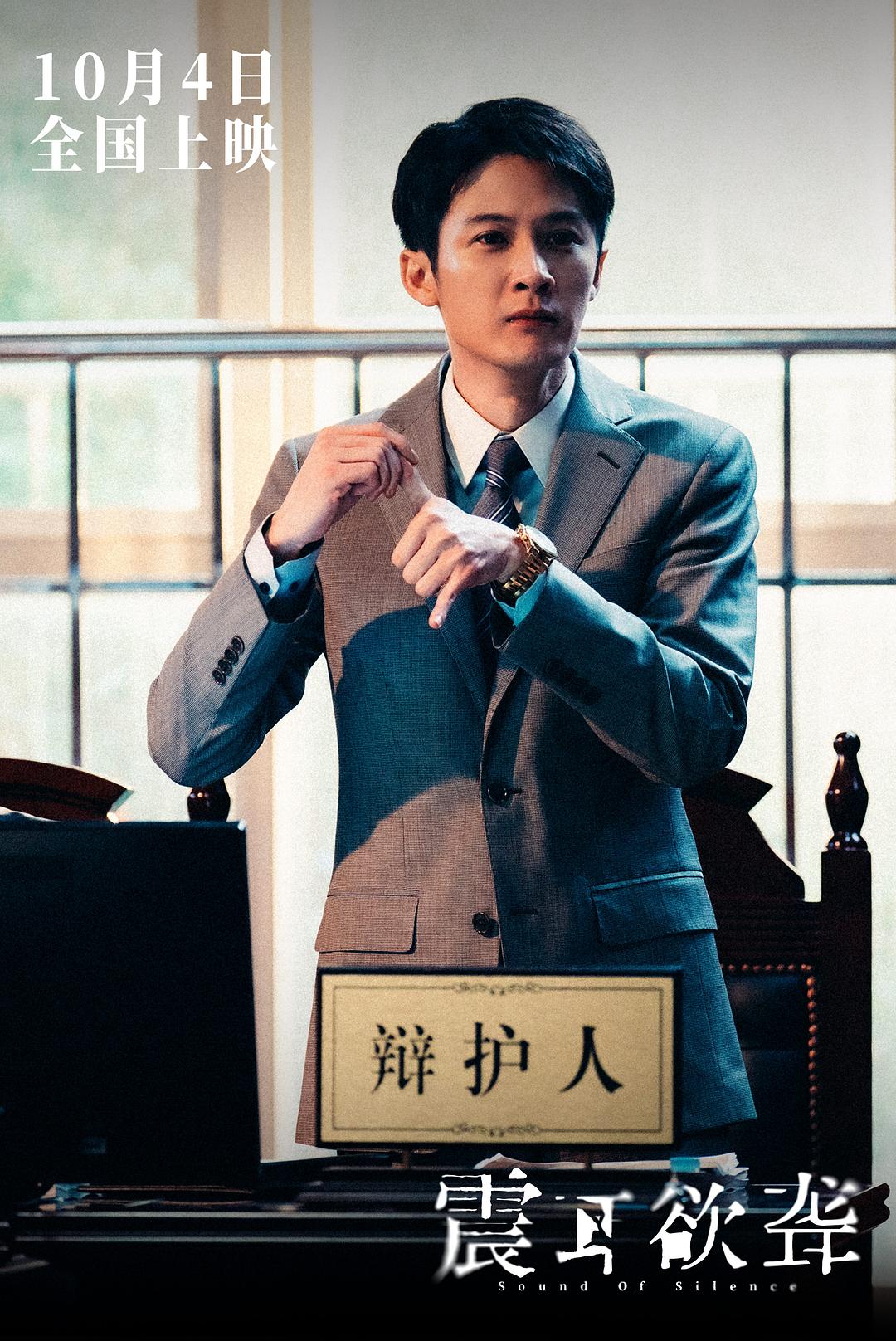
Tan Jianci plays the "Grayscale Lawyer" Li Qi
Zhang Qi's story itself is full of drama: as a child, she used sign language to communicate with her parents at home, and the deaf community assumed, "You can speak, so you should help us translate." At school, her classmates assumed, "You're from a deaf family, so you're different from us." This dilemma of being caught between two worlds becomes the underlying theme of Li Qi's character.
Wan Li specifically mentioned in the interview that it was the struggles of his characters' upbringing that allowed him to see the vast potential within his creative work. He doesn't want to be a "perfect hero": "Everyone has moments of identity doubt and a desire for money, fame, and fortune, but everyone also has a foundation of kindness and justice."
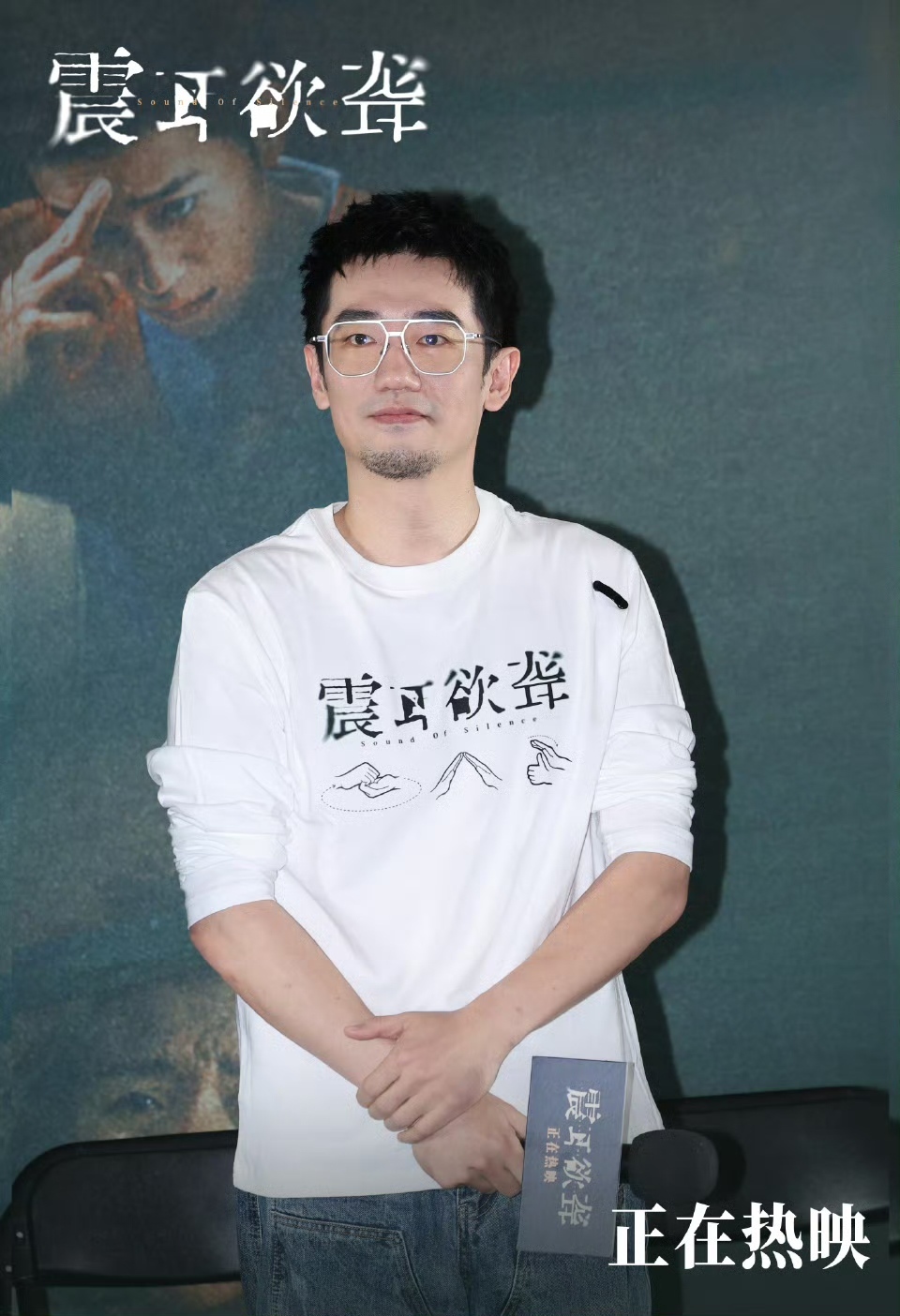
Director Wan Li
When filming special groups, "beautification" or "curio hunting" is always common in film and television dramas. They are either portrayed as pure victims, or their "specialness" is exaggerated, turning them into symbols for sympathy. But "Deafening" does not do this.
Wan Li and his team conducted three months of research, interviewing numerous deaf communities. He discovered that in real life, special groups naturally form their own communities. The "toy factory compound" in the film was inspired by the toy factory compound where Zhang Qi's mother once worked. There was Old Ma (Pan Binlong), a tire repairman; a woman playing mahjong; and an elderly man drying quilts—all of these details came from Zhang Qi's memories: "When he was a child, he had a deaf neighbor who repaired bicycles. Every time they saw him, they were so happy that they would take him out for dumplings." Wan Li incorporated this detail into the film, and Zhang Qi couldn't help but burst into tears the first time she saw it.
Even more remarkable is the film's unwavering commitment to the complexities of the deaf community. Wang Yanhui, the villain, himself from a deaf family, exploits the trust between deaf individuals to defraud real estate. Lan Xiya's character also teaches children to use the sympathy card to defraud money. Rao Xiaozhi stated frankly in an interview, "We don't intend to glorify anyone. Disadvantaged groups also have desires and make mistakes—because they are first and foremost 'people,' not 'symbols of the vulnerable.' Our goal is to confront them head-on."
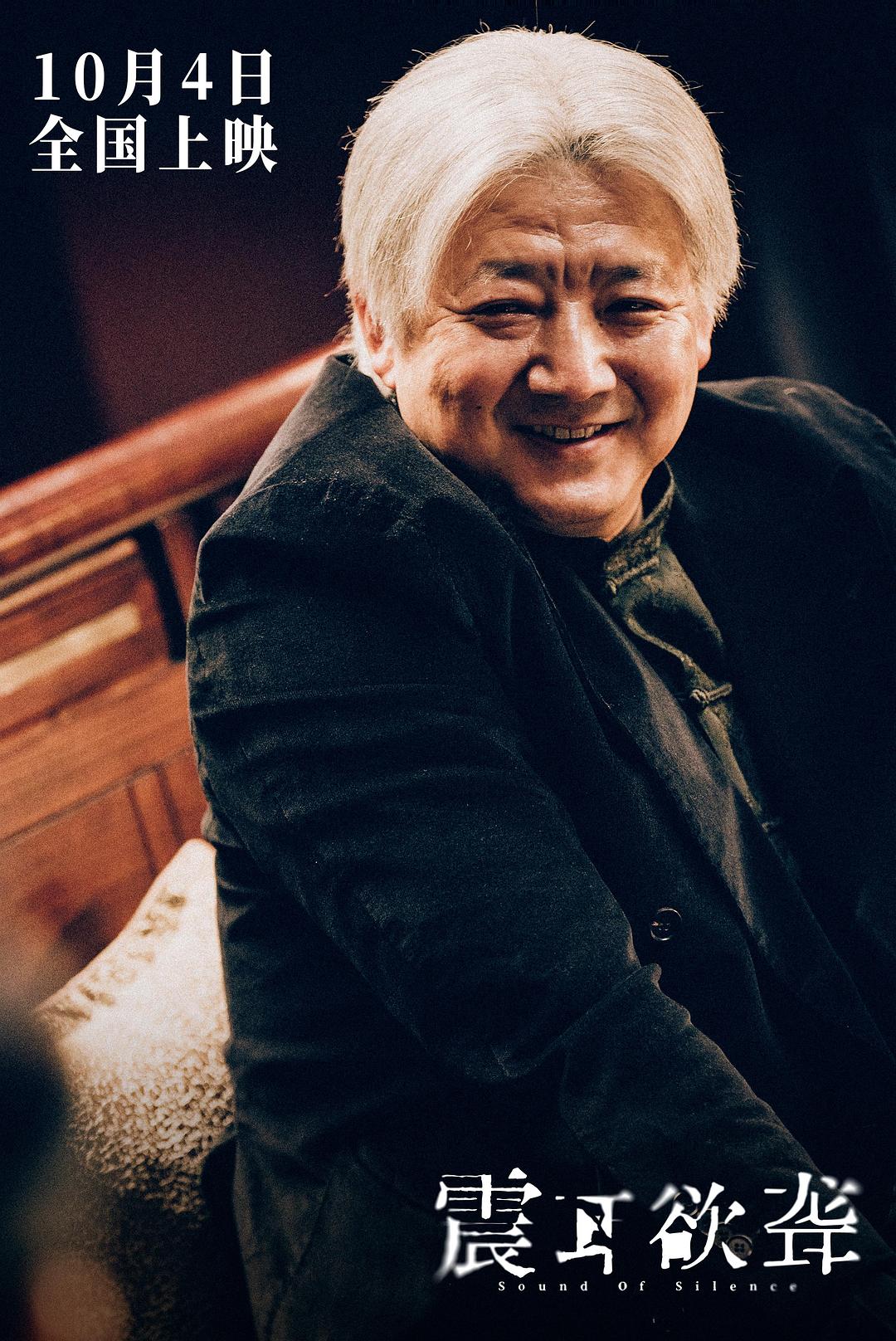
The villain of CODA in the film is played by Wang Yanhui
During filming, the crew hired 12 real deaf actors, which also posed a challenge to the main creators. At the beginning, a sign language teacher was needed to translate, but gradually, the on-site staff all learned simple sign language. Wan Li remembers that after filming, she used sign language to say "Everyone performed well", and the deaf actors would also use their mobile phones to type and talk to her about the role.
The executive producer's most memorable moment was a role reversal: the sign language teacher was unavailable, and he had to communicate filming details with the deaf actors via typing on his phone. "That's when I realized I was in the minority—they typed faster and communicated more fluently than I did, while I was sweating profusely because I couldn't understand sign language." Wan Li said that as hearing people, they also suddenly felt the communication barriers and the embarrassment of not being understood. "Many moments like this helped us better understand their feelings."
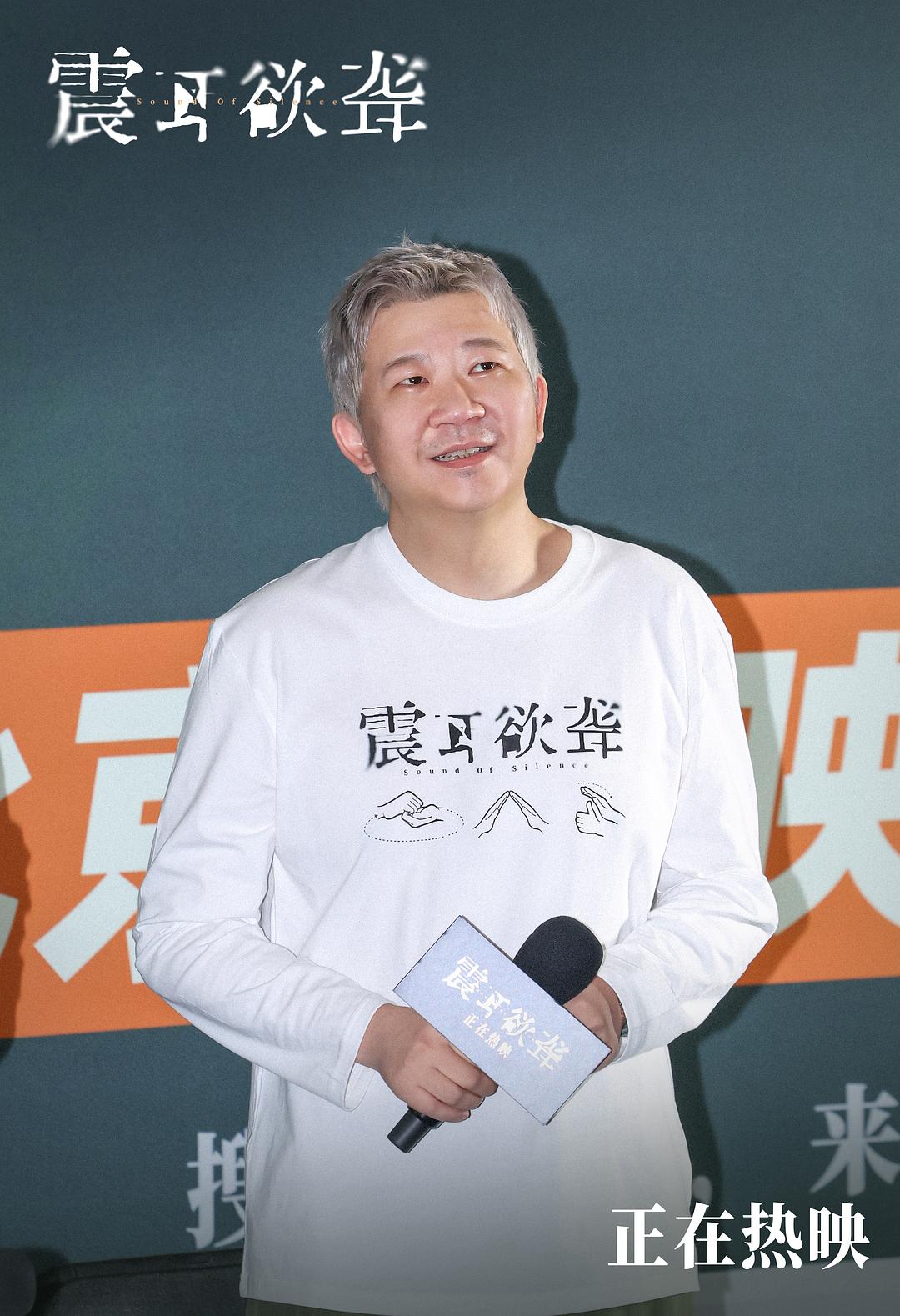
Producer Rao Xiaozhi
Producer Rao Xiaozhi summed up this state of affairs as "the growth path of ordinary people": "Many people are trying to escape the influence of their original families. I myself once really wanted to escape from my own county and small town." In Rao Xiaozhi's view, there are lawyers around him. In addition to the debates in legal dramas, most of the time they face tedious work and have their own worries about career advancement. Li Qi's "grayness" is the normal human nature of seeking benefits and avoiding harm. "How can anyone be born with a sense of justice? He grew up in such a group since he was a child, and he is destined to speak out for it." Rao Xiaozhi said, "We made this film to break the stereotyped portrayal of this group of people in many past works. Whether it is CODA lawyers or the deaf community, they are our normal people, and they also have their own problems."
The sound design is not about showing off, but about letting the audience “walk into” the silence.
As a film about the deaf, sound processing is as important as visual expression. Deafening is more attentive in this regard, but also very restrained.
From the moment the film's credits appear at the opening, it begins to use sound to create a world different from the conventional auditory space. The creators simulated the sound and vibrations felt by people with different degrees of hearing impairment, allowing the audience who enters the theater to have a direct sensory experience at the first moment.
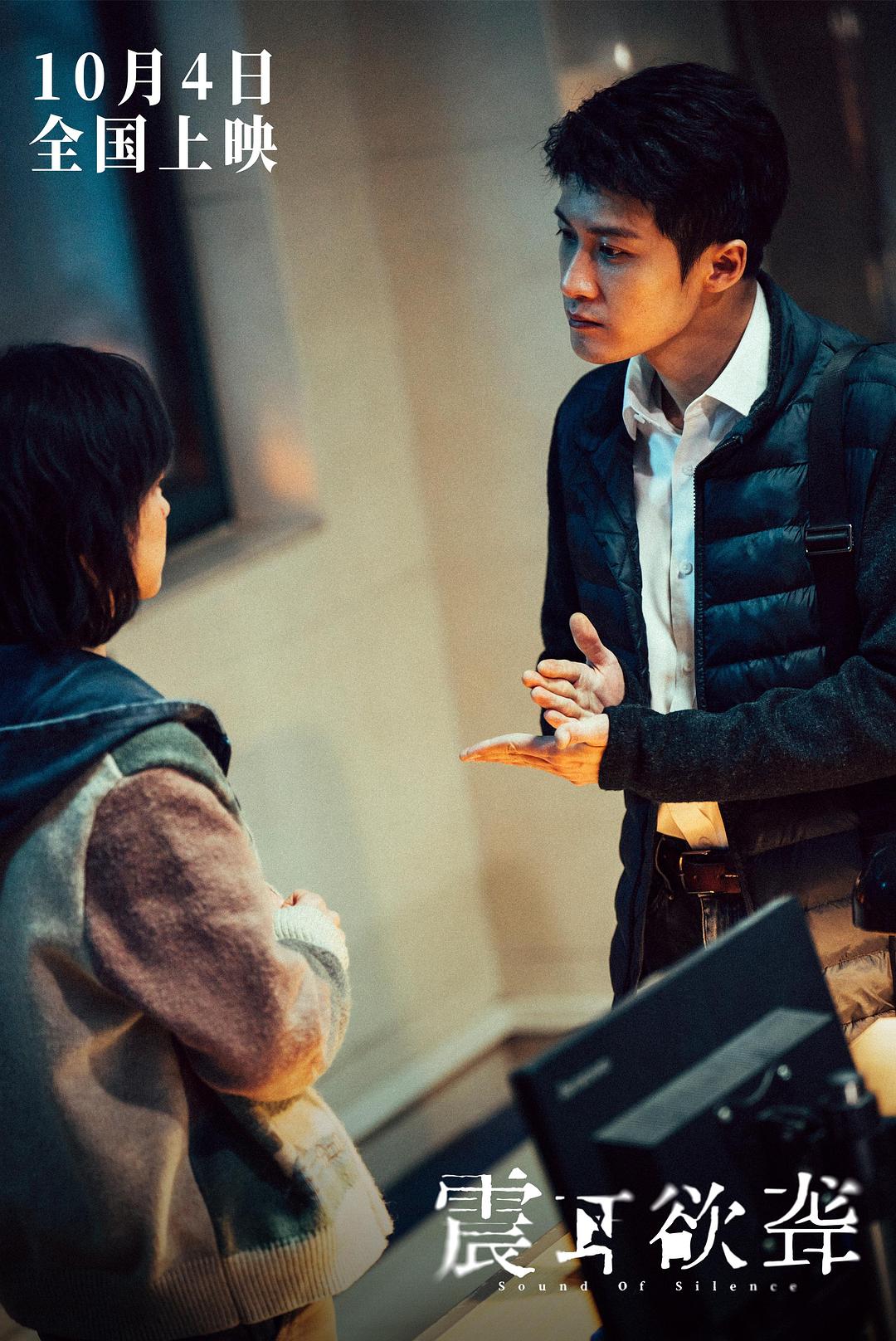
Stills from Deafening
There's also the "tinnitus" sound effect in the film—not a sharp noise, but a low vibration, like something blocking the ear. Wan Li explains that this sound effect was designed specifically for cinemas: "Only in a movie theater can you feel that vibration coming from the seat, like what deaf people say, 'I can't hear it, but I can feel it.'" Of course, as a hearing director, he can't verify or disprove whether this sensory experience truly reflects the experiences and circumstances of the deaf community. "Auditory experience is subjective. They can only describe it through sign language or text. All we can do is immerse the audience in it."
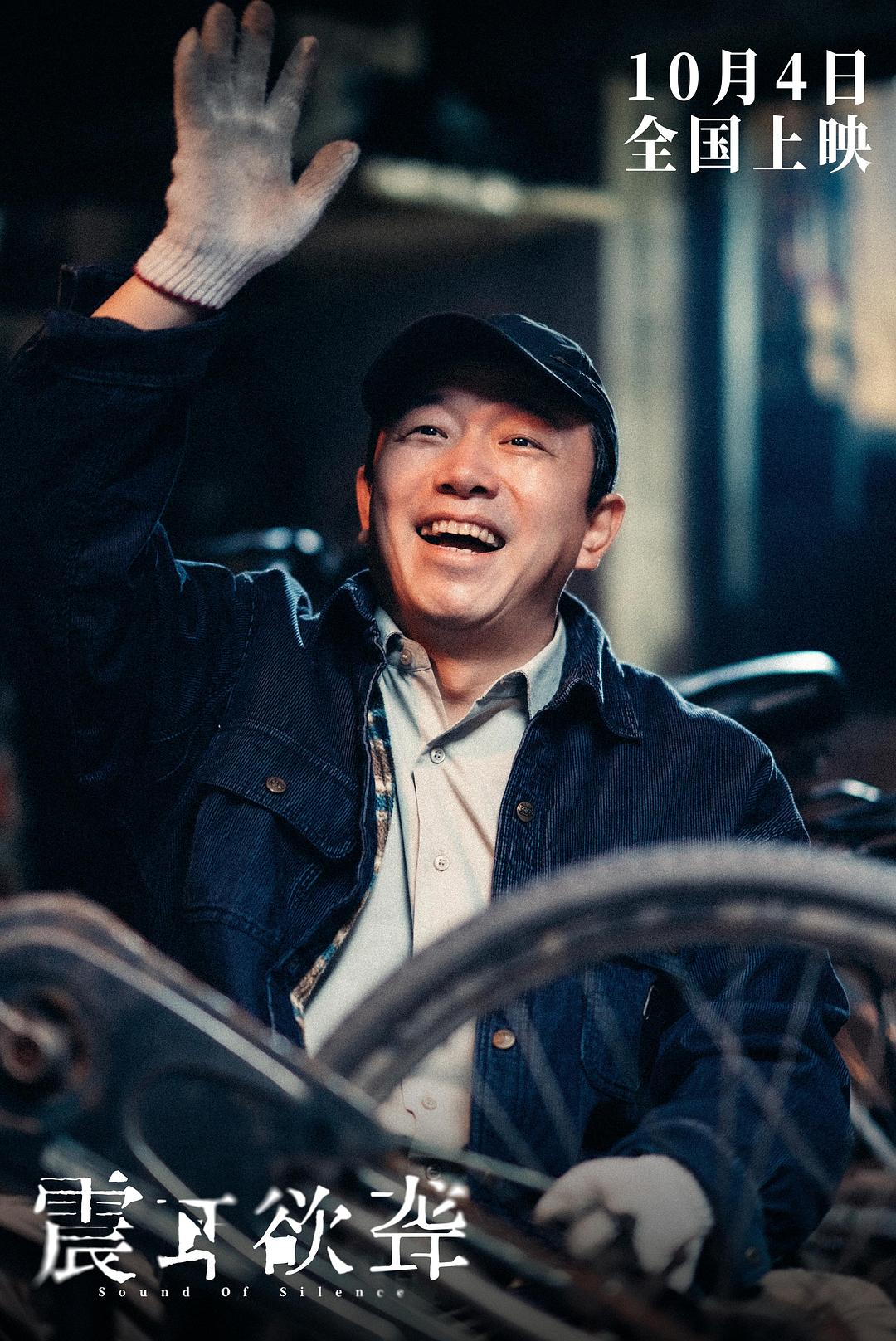
Old Ma in the toy factory yard
The film's meticulous attention to detail in sound design isn't limited to its emulation of physical sensations; it also encompasses the filmmakers' meticulous craftsmanship in creating realistic, lifelike scenes. For example, the scene where Li Qi first enters the toy factory compound features a sound design that defies convention: the clatter of mahjong, the sizzle of cooking, the rustle of quilts drying in the sun—but without a single human voice. "Put yourself in Li Qi's shoes, and you'll understand: the world of the deaf isn't 'silence,' but rather 'the absence of a sound.'"
The dialogues in the film, with the addition of sign language, have become more open to criticism and interpretation. After the film was released, netizens who understand sign language interpreted that the sign language used by the actors in the film actually conveyed richer information and stronger emotions than the direct translation of the subtitles. In this regard, Wan Li explained that sign language is another language system that includes facial expressions and body language - "When two deaf people communicate, wearing masks may not be able to understand each other clearly." "It's like adding emoticons to WeChat chats," Wan Li gave an example, "the same sentence 'it's okay', with a smiling emoticon and a frowning emoticon, has completely different meanings. Sign language emoticons are the 'emoticons' of the deaf, and they are their emotional outlet."
Realism in the National Day Film Festival: Giving Courage to Ordinary People
The National Day box office in 2025 is still lively. "Deafening" was released in the middle of the National Day holiday, like a silent and resolute stone thrown into a rushing river, filling in a piece of the puzzle belonging to the "unknown" with a steady realistic attitude.
This marks another time that producer Rao Xiaozhi has focused his attention on the marginalized individuals on society's margins. He told reporters about his fondness for these "little people." "I've always filmed small characters, whether it's 'The Unknown' or 'Deafening,' they reflect my own aspirations as a human being, a hope for a better future. This also serves as a perspective on my thinking and creativity as a creator. Most of us experience moments of boredom. In those moments, where do we stand and what choices do we make? This is where these characters can bring us strength."
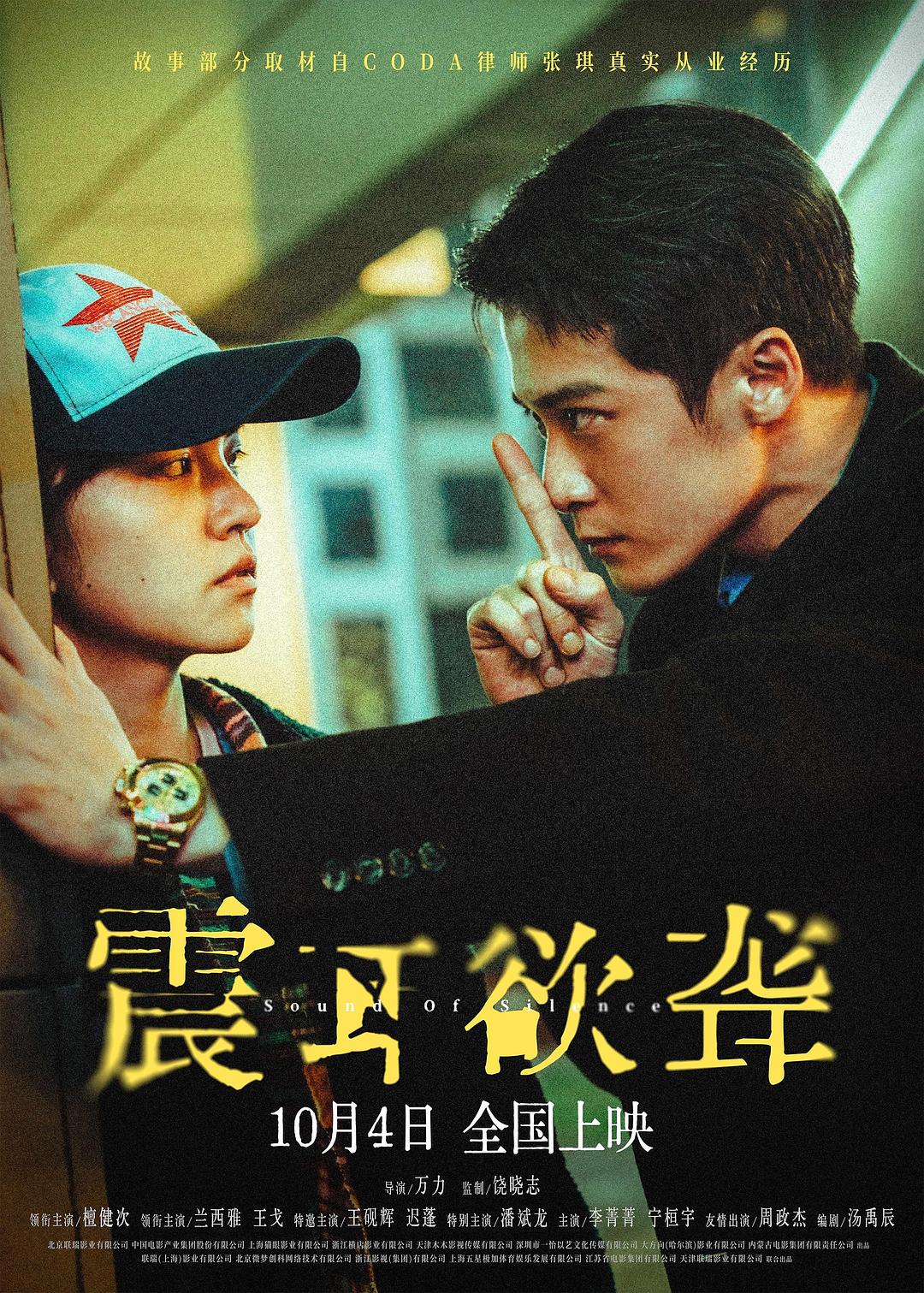
Deafening poster
For Rao Xiaozhi, who has already "conquered" various mainstream major periods including the Spring Festival and National Day, and won the National Day championship three years ago with "The Journey Home", he chose the National Day period this time on the one hand because he hopes that the film can give the audience "a different realistic concern" and "express the voice of ordinary people through the growth of the characters". On the other hand, Rao Xiaozhi is also confident that the film will be good-looking as a narrative that conforms to commercial genre films.
"Although it's a realistic film, we actually approached it as a genre film." Director Wan Li doesn't want audiences to suffer in theaters. Speaking of the film's initial positioning, he hoped to make a "good-looking, even entertaining film." "In fact, there are many difficult things in everyone's lives these days, and we still hope to give the audience a good experience. Beyond that experience, being able to feel a little moved is the icing on the cake."
"Every generation has its own eggs," Rao Xiaozhi quipped in an interview. While older generations might have fallen prey to the "egg-sucking" scam in the past, the deaf community, due to information barriers and communication barriers, has become a target for scammers. In real life, people from diverse cultural backgrounds seem to encounter a myriad of scams using a variety of tactics. When director Wan Li accompanied lawyer Zhang Qi on a field trip, he realized that far more people were being scammed than he'd anticipated.
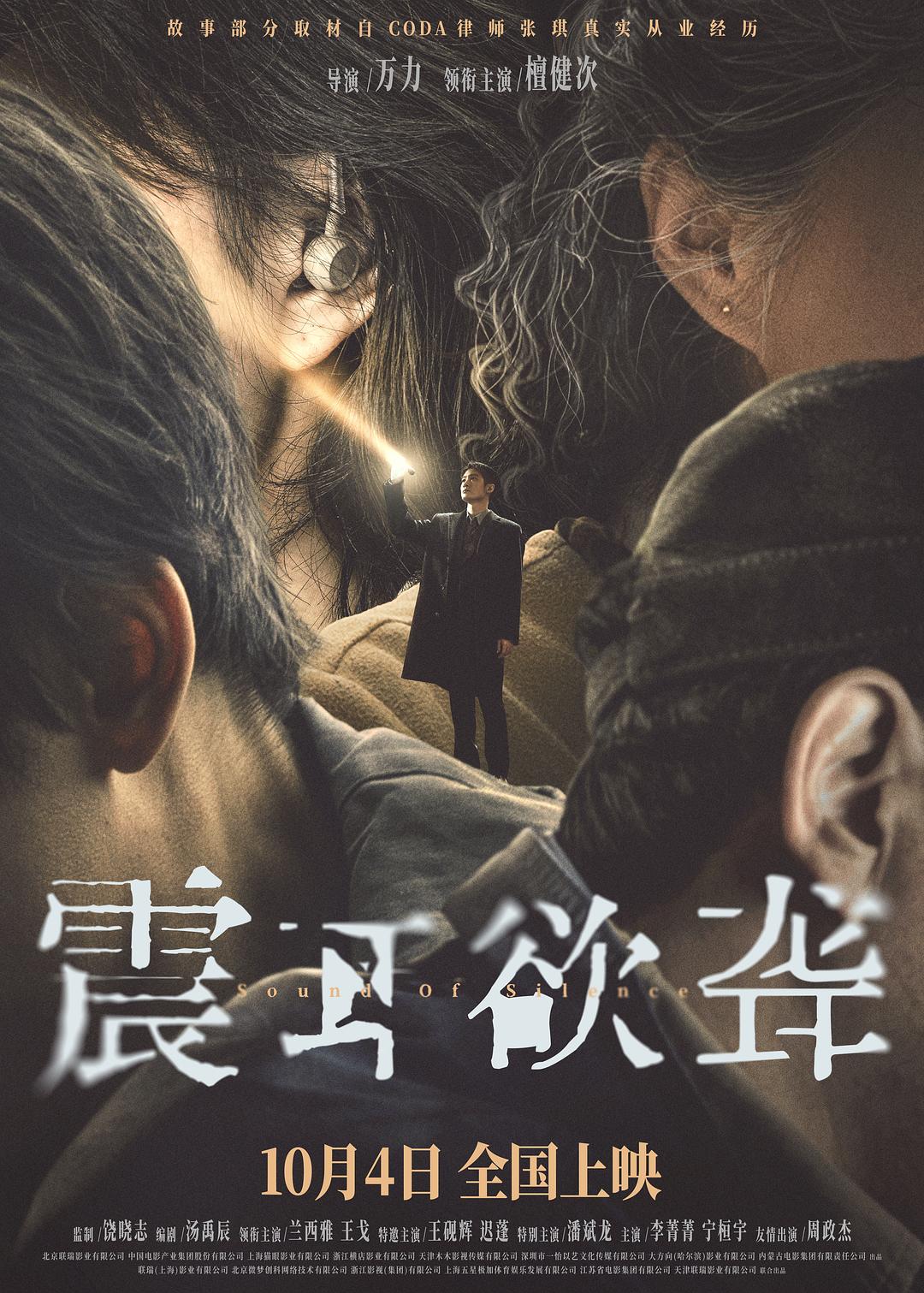
movie posters
"Many people are reluctant to even talk about being cheated for the sake of face or because they feel there is no way to appeal. However, the injuries they suffered will become a lifelong shadow." The purpose of making such a movie is, on the one hand, to make everyone more vigilant, and on the other hand, to let the audience understand that when facing difficulties, they need to take the initiative to "speak out."
"The theme of our film is about 'speaking up' and being your own hero. Often when you're in trouble and feel helpless, someone might come to your aid. But in most cases, you still need the courage to stand up. Although we're showcasing a so-called special group, I hope everyone can empathize with them."

